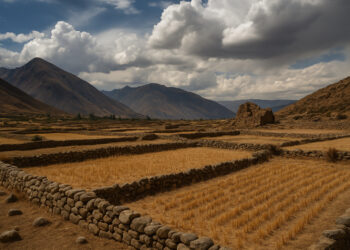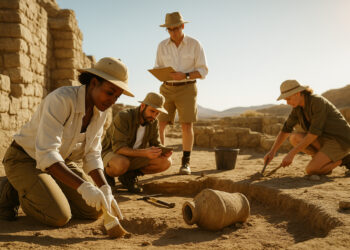Throughout history, religion has been both a unifying force and a spark for rebellion. Faith shaped the laws, values, and power structures of empires while also inspiring revolutions that sought freedom from oppression. From the divine kingships of ancient civilizations to the ideological struggles of modern times, religion’s influence has reached far beyond temples and churches—it has written the script of human destiny.
1. Religion as the Foundation of Empires
Empires often rose on religious legitimacy. The Egyptian Pharaohs claimed divine status, ruling as gods on earth. In Medieval Europe, the Catholic Church crowned kings and shaped laws, intertwining faith with governance. Similarly, the Mughal Empire in India blended Islamic rule with cultural tolerance, using religion as a means of integration rather than domination.
In each case, faith provided rulers with moral authority and citizens with a shared identity. Religion became the glue that held vast and diverse populations together.
2. Faith as a Catalyst for Revolution
The same beliefs that supported empires also fueled rebellion when faith collided with injustice. The Protestant Reformation challenged the authority of the Catholic Church, triggering wars and paving the way for modern nation-states. In colonial America, religious freedom became a rallying cry during the Revolution, influencing the founding principles of democracy.
Similarly, the Iranian Revolution (1979) demonstrated how religion could topple modern political powers, proving that faith-based movements remain potent in shaping history.
3. Cultural Exchange and Conflict
Religion also drove exploration, conquest, and reform. The Crusades were fueled by religious zeal but led to unprecedented cultural exchange between East and West. Missionaries during the Age of Exploration spread Christianity across continents, while also clashing with indigenous beliefs. These encounters reshaped global societies, blending spiritual traditions and creating new hybrid cultures.
Yet, religious conflict also revealed the dangers of intolerance—wars fought in God’s name often left deep scars that outlasted the battles themselves.
Conclusion
Religion has been both a builder and breaker of civilizations. It legitimized power, unified nations, and inspired resistance when rulers overstepped moral bounds. From empires to revolutions, faith continues to influence how people seek justice, meaning, and identity. Understanding its dual nature helps us grasp the balance between belief and freedom in shaping human history.












